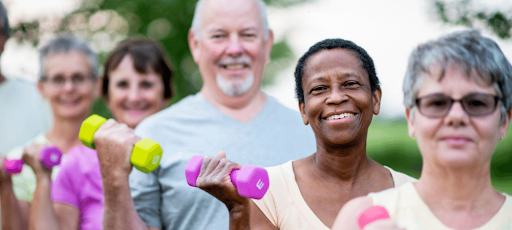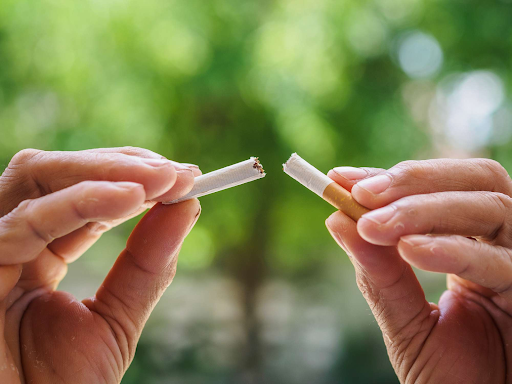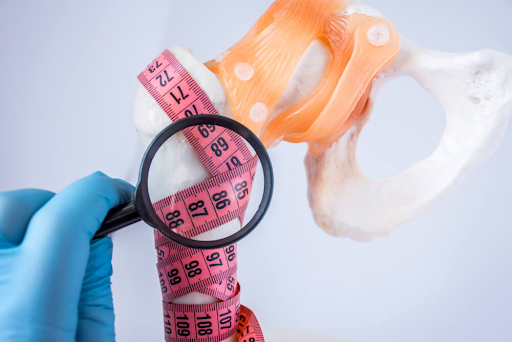As we grow older, maintaining healthy bones becomes a common concern among all of us. The food we eat and the physical activities we engage ourselves in have a long-lasting effect on the health of the bone and its density. While it’s important to build healthy bones in our childhood, it is also equally important to protect our honey as our age declines. Here, you will find some simple and effective ways to increase bone density in old age.
Bone Density and Its Importance
Before we delve into How to increase bone density in old age, let us first understand what bone density means. Bone density is the amount of bone mineral in bone tissue, particularly the amount of calcium and phosphorus. Think of it like the density of a forest- the more trees (minerals) packed in a given area, the denser the forest i.e. your bones will be. Thus, in simple terms, bone density means how firmly minerals are secured in your bones.
Now, why is bone health and density important ? Bone density is an important indicator of how likely bones are to break. It is important to have stronger bones as it helps to prevent breakage of bones or fractures from sudden falls or accidents. Many other conditions such as osteoporosis where the bones become brittle or delicate are also tackled when we have increased bone density.
How to Increase Bone Density in Old Age
1. Include Plenty of Calcium and Vitamin D in Your Diet
To boost bone density for people in their advancing years you should include plenty of Calcium and Vitamin D in your diet. Leafy green vegetables that are rich in calcium such as spinach, kale, and broccoli are ideal choices and should be eaten frequently. Those who are not lactose intolerant can also opt to introduce a glass of milk or yogurt to their daily diet. To contribute to the overall bone health, sunlight and canned sardines are also good sources of Vitamin D.

It has been published in many studies that a high intake of green and yellow vegetables has been linked to increased bone density. Therefore an essential part of knowing How to increase bone density in old age largely depends on the diet you take, contributing to increased bone density.
2. Engage in Physical Activities
Another effective strategy on How to increase bone density in old age can be done by engaging yourself in some sort of physical movement. Some specific types of exercises including weight bearing and strength training can help you build and maintain your bones. Here, the muscles contract by the use of resistance to build strength and increase the size of skeletal muscles. You can aim to practice these exercises for thirty minutes in a day and twice or thrice in a week for a more significant result.

People who are physically inactive or have a low rate of physical movement are often said to be at more risk of developing osteoporosis. Osteoporosis is a condition where bone mineral density and bone mass decline which changes the overall bone structure of the body.
3. Increase Protein Intake
Many researchers recommend consuming around 30–40 g of protein at each meal. Proteins are made of a chemical component called amino acids which repairs the muscles and bones. Some good sources of protein are eggs, meat and fish, and legumes like beans and lentils which can be included in your diet. Protein will thus contribute to increasing bone density and support the overall bone structure of the body.

4. Quit Smoking
Smoking has a detrimental effect on the bones, it is said to make the bones weak. When the bones become weak and soft, you become more prone to fractures. Nicotine in cigarettes slows down the production of bone-producing cells, which decreases the density of your overall bones. Thus, if you are wondering how to increase bone density in old age, quit smoking.

5. Reduce Alcohol Intake
Consumption of excessive alcohol can interfere with bone growth, particularly in old age when bone density is depreciating. It is always advisable to consume alcohol in a limited quantity to reduce the possibility of fracture. Many studies also show that alcohol can harm the bones directly, harming the cells that make new bones grow. Besides this, excessive alcohol consumption has a damaging effect on the overall body of an adult.

6. Get Regular Check up
Another approach to tackle how to increase bone density in old age, is to get regular check-ups from the doctor. This will help you monitor your bone health and density, and introduce changes in your routine accordingly. It is important to consult your doctor to have a full picture and identify potential diseases. They can recommend the correct tests to gauge your bone density and determine your rate of bone loss.

Conclusion
Now that you have understood how to increase bone density in old age, you can effectively increase bone density by practicing healthy habits in your advancing years. By taking a balanced diet that has good amounts of Calcium and Vitamin D and making some physical movement or engaging in weight training, you can easily work towards the health of your bones.
FAQ
1. What food should you eat to increase bone density?
The ideal food to eat in order to increase bone density are food items that are rich in Calcium. A good example of Calcium-rich food items are dairy products, such as milk and yogurt, and leafy vegetables such as spinach and kale.
2. Which fruit is best for building strong strong bones?
For strong bones, you can include figs in your diet as they contain vitamins and minerals that have been proven to increase bone density. A cup of Figs has around 180 milligrams of calcium.
3. Does weight training help to increase the density of bones?
Yes, some specific types of exercises, including weight bearing and strength training can help you build and maintain your bones.
